Post researched and written by Ali Clarke, Hocken Collections Assistant
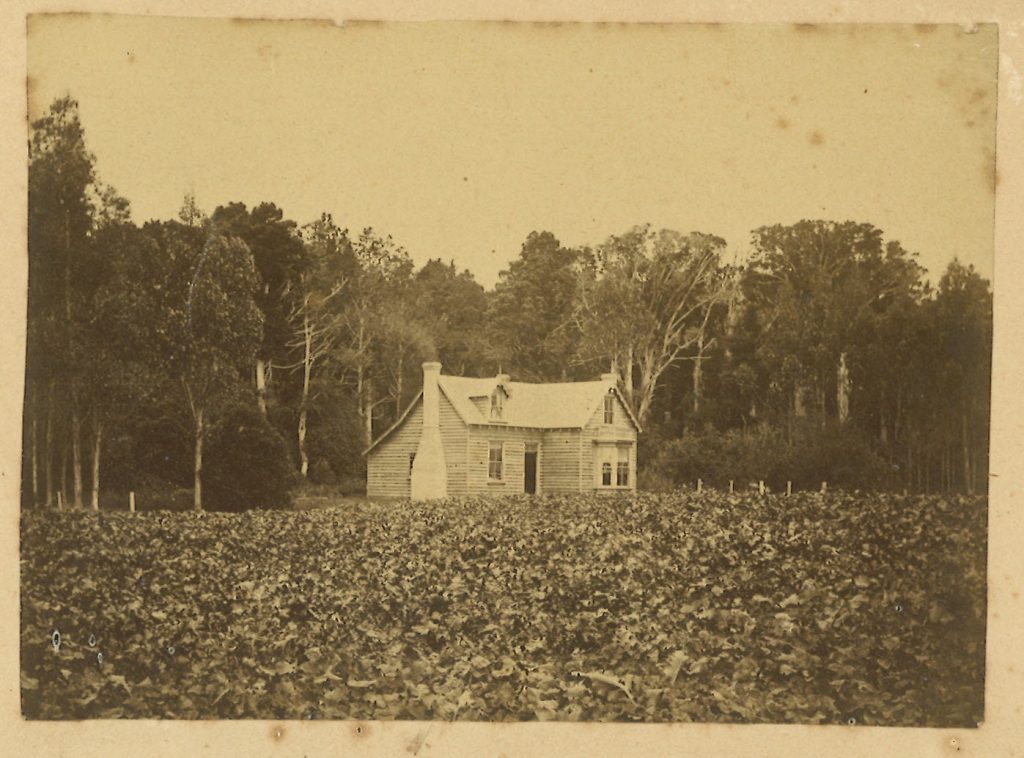
An undated photograph of the Blackie family farmhouse near Kaitangata. The farm was named Pendreich. MS-4443/149.
In the Blackie family farmhouse, beside the Matau branch of the Clutha River, near Kaitangata, was a large table. Into a drawer in that table went all sorts of pieces of paper, from tickets and receipts to letters and notebooks. Over more than a century and three generations, the oldest items were pushed to the back of the drawer as new items were added; a collection of fascinating items detailing the life of the farm, the family and the district accumulated.
Those papers form one part of a wonderful collection of Blackie family papers and photographs, donated to the Hocken by Judith Robinson over the past few years. We have recently completed full arrangement and description of the collection, which is now listed on our online catalogue, Hākena (reference ARC-0329).
The Blackie family, originally from Dundee, began its connection with Otago in 1848, when James Blackie arrived in Dunedin on the ‘Philip Laing’ as first school master of the Otago Free Church colony. He started a school in Dunedin, but became ill with tuberculosis; he went to Sydney late in 1850 and died there early in 1851. He had bought land for a farm near Kaitangata and, after various legal complications, his brother Davidson Blackie, plus wife Margaret Pandrich and four children, migrated to take up the land, arriving at Kaitangata in 1860. Three generations of Blackies ran the farm, while some family members branched out. Davidson Blackie’s son James was an early student of the University of Otago and the first graduate of the local Theological Hall – he served as a Presbyterian minister in Cromwell and Lumsden and large surrounding districts until his early death. His widow, Jeanetta Blackie, was first principal of the Presbyterian Women’s Training Institute (later known as Deaconess College), and one of his daughters, Agnes Blackie, was a long-serving physics lecturer at the university. Davidson’s son Alexander worked on the family farm, talking a couple of years off in the late 1870s for an extensive world tour. Alexander’s daughter Nell was a physical education teacher and inspector, while his daughter Rhoda completed a home science degree and had a long career at Southland Technical College. Nell and Rhoda both retired back to the farm, where they lived with their brother Davidson and sister Pansie. Another part of the family was in North Otago. Margaret Blackie (Rev. James and Alexander’s sister) married William Dewar; they farmed near Maheno and had a large family. Two of their sons, Alexander and Davidson, were killed in World War I.
The collection is wonderfully rich and it is only possible to highlight a few of its treasures here. There are many letters between family members and friends in New Zealand and Scotland, and also cousins in the USA, describing life in those places. There is an unusually full set of papers relating to Davidson and Margaret Blackie and children’s migration from Dundee to Otago, including their tickets, and some older items they brought with them (music, old family ledgers, school books). There are many accounts and receipts for farms and households. The papers of individual family members vary according to their work and interests. Among the items relating to the University of Otago are Rev. James Blackie’s 1870s student notebooks, Rhoda Blackie’s 1910s home science essays and Agnes Blackie’s reminiscences of her life as a student and then lecturer of physics from the 1910s to the 1950s. There are many items relating to World War I, including letters from various family members and friends on active service. A large collection of photographs ranges from 1840s and 1850s daguerreotypes to twentieth century studio portraits and informal snapshots.
We are very grateful to Judith Robinson, whose late husband Keith Robinson was a grandson of Rev. James and Jeanetta Blackie, for the donation of this collection.

Among the oldest items in the collection are these three manuscript books of music. One is named Alex Laing; there are dates in the 1810s next to some tunes. They include many traditional Scottish tunes – below is a close-up of another page from the one named Alex Laing. At first we wondered if they were for the bagpipes, but now suspect they may be for the violin. We welcome any further thoughts on that! MS-4456/180.
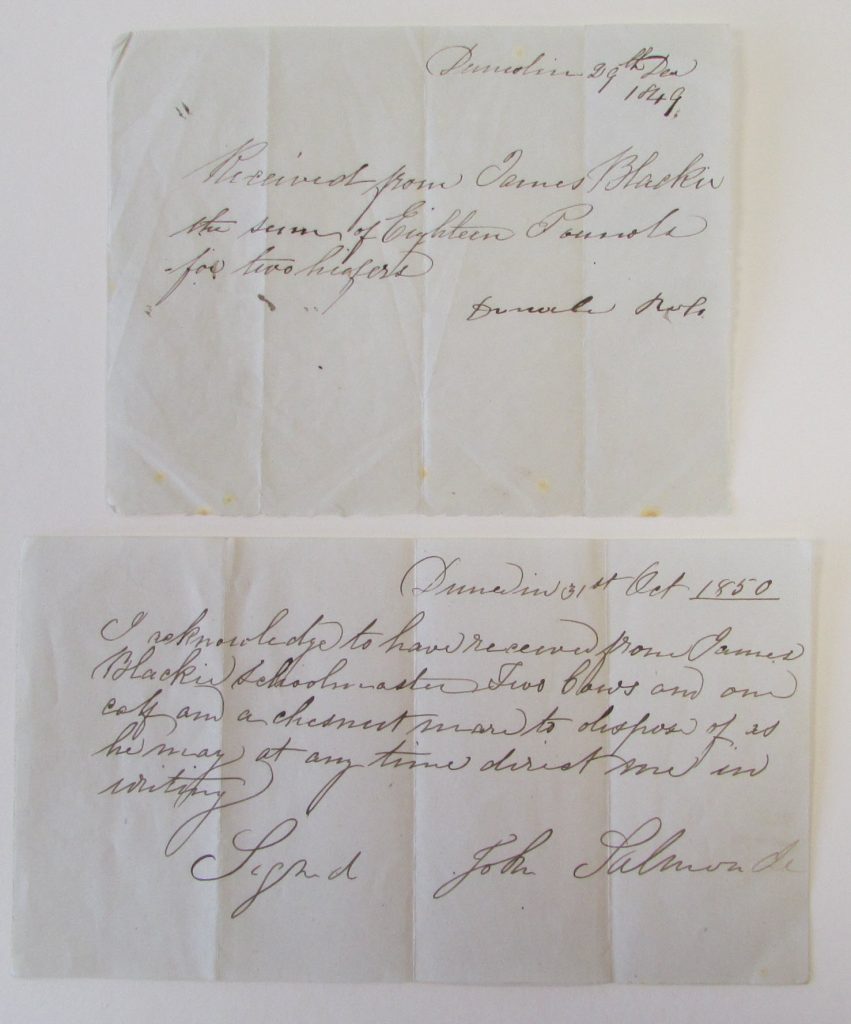
A receipt for two heifers, purchased by James Blackie in Dunedin in 1849, and another for two cows, a calf and a chestnut mare, which John Salmond was to take charge of for Blackie the following year. The ailing Blackie travelled to Sydney, but died there a few months later. MS-4456/126.
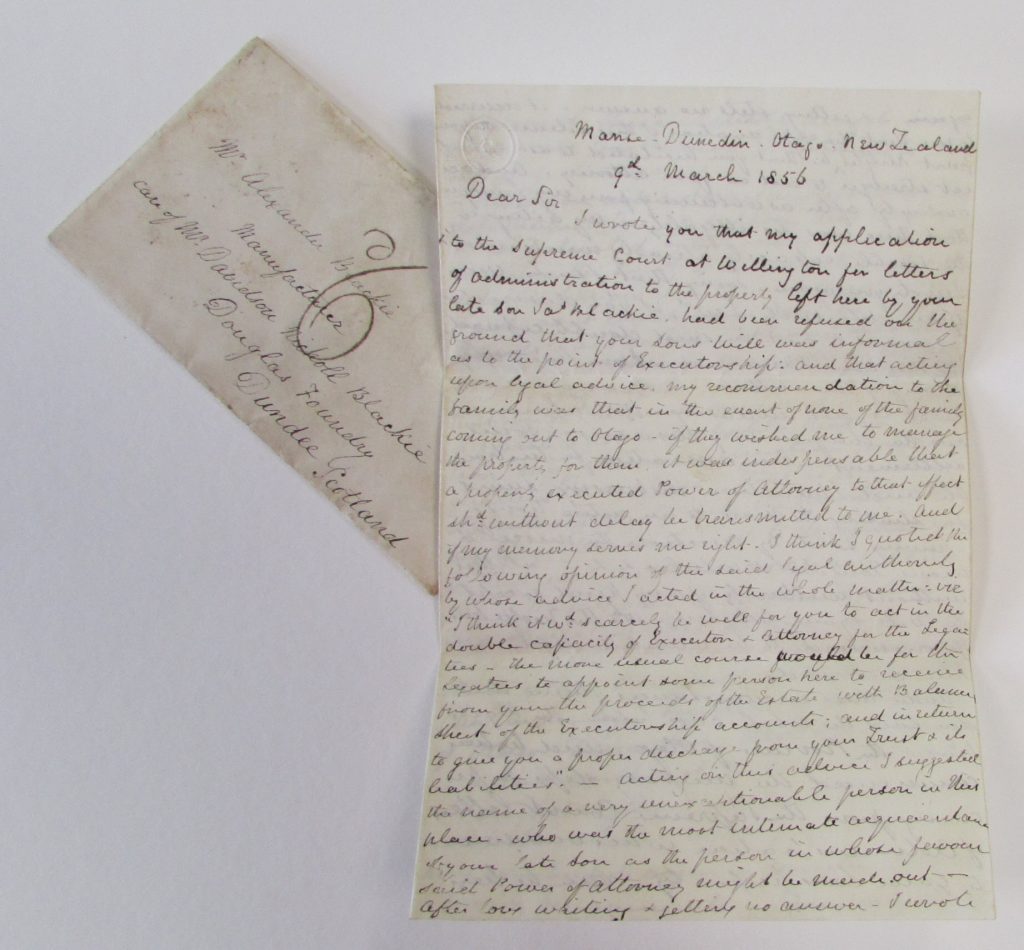
This is one of several letters written by Rev. Thomas Burns, religious leader of the Otago colony, to the Blackie family in Scotland about the estate of James Blackie. There is also a power of attorney for Burns to manage the estate. MS-4456/125.
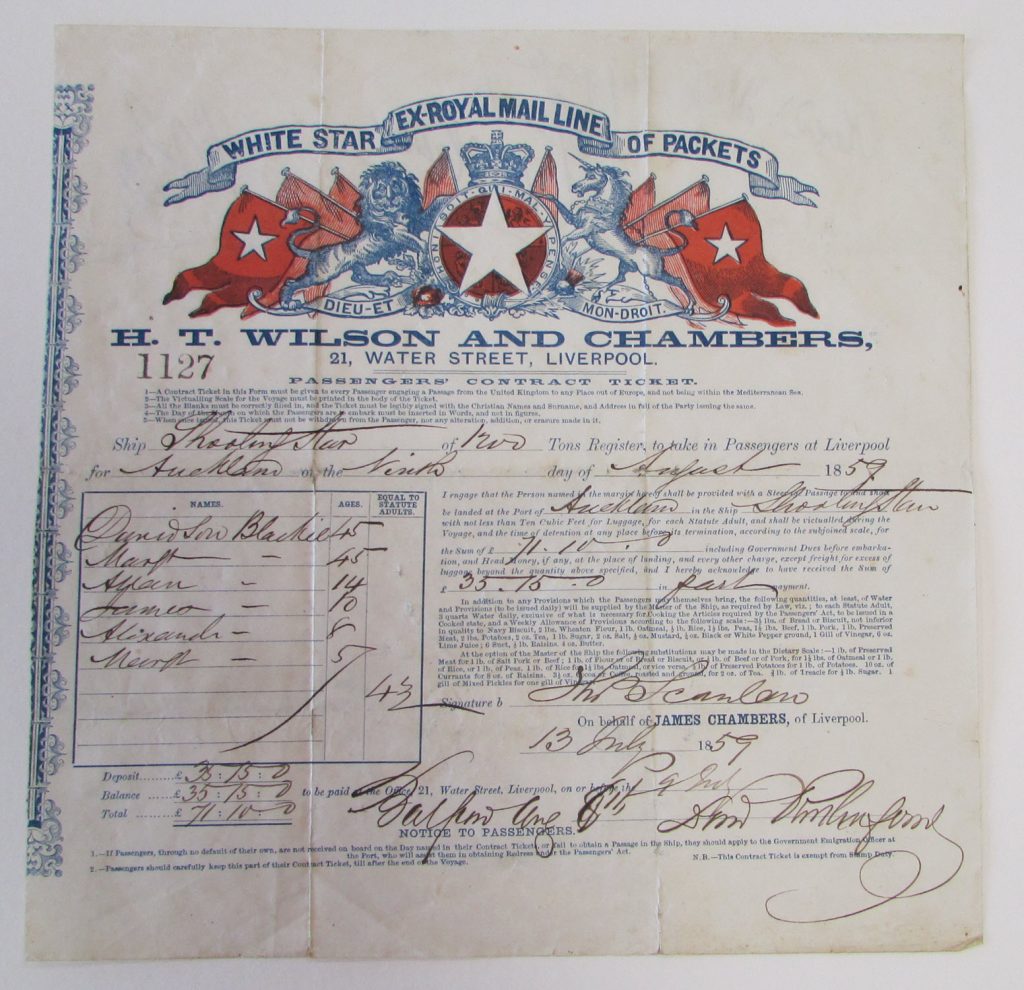
A ticket for the Blackie family’s voyage from Liverpool to Auckland in 1859. They travelled from Dundee to Glasgow by train, then by steamer to Liverpool, on the ‘Shooting Star’ to Auckland, then by coastal ship to Dunedin. MS-4456/184.
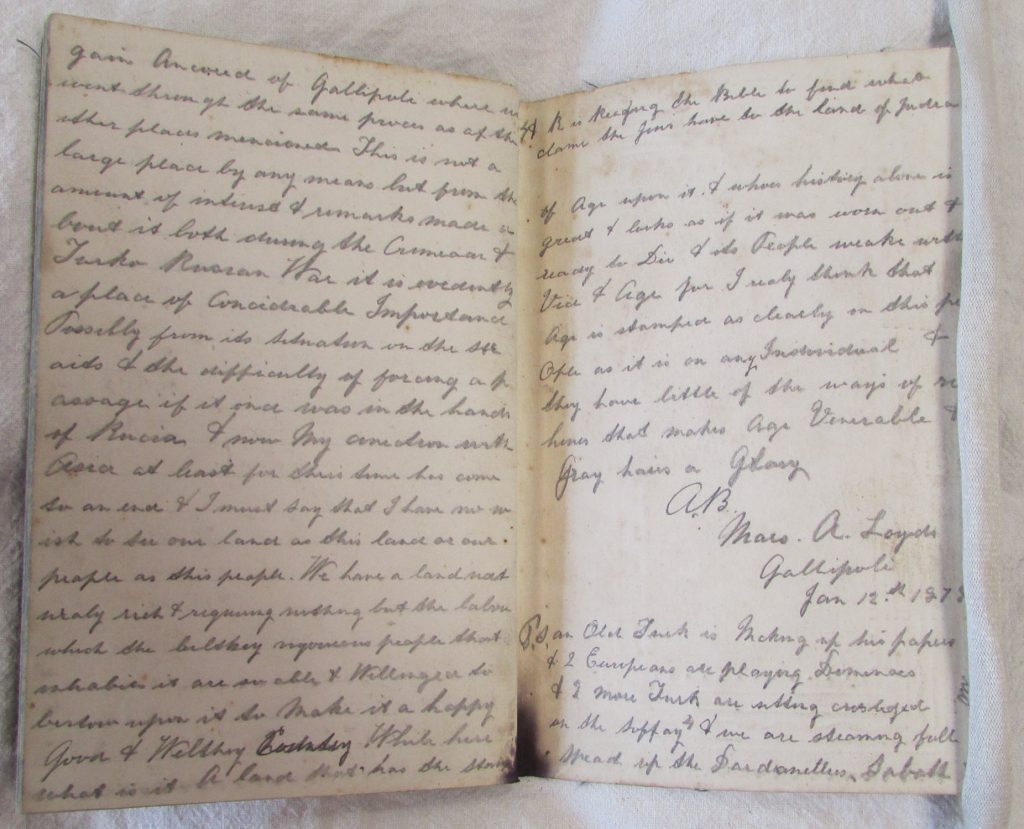
During his trip to Australia, North America, Asia and Europe in 1878-1879, Alexander Blackie kept a journal. This page shows his impressions of Gallipoli: ‘This is not a large place by any means but from the amount of interest & remarks made about it both during the Crimean & Turko Russian War it is evidently a place of considerable Importance Possibly from its situation on the straits & the difficulty of forcing a passage it it once was in the hands of Russia’. MS-4456/111.
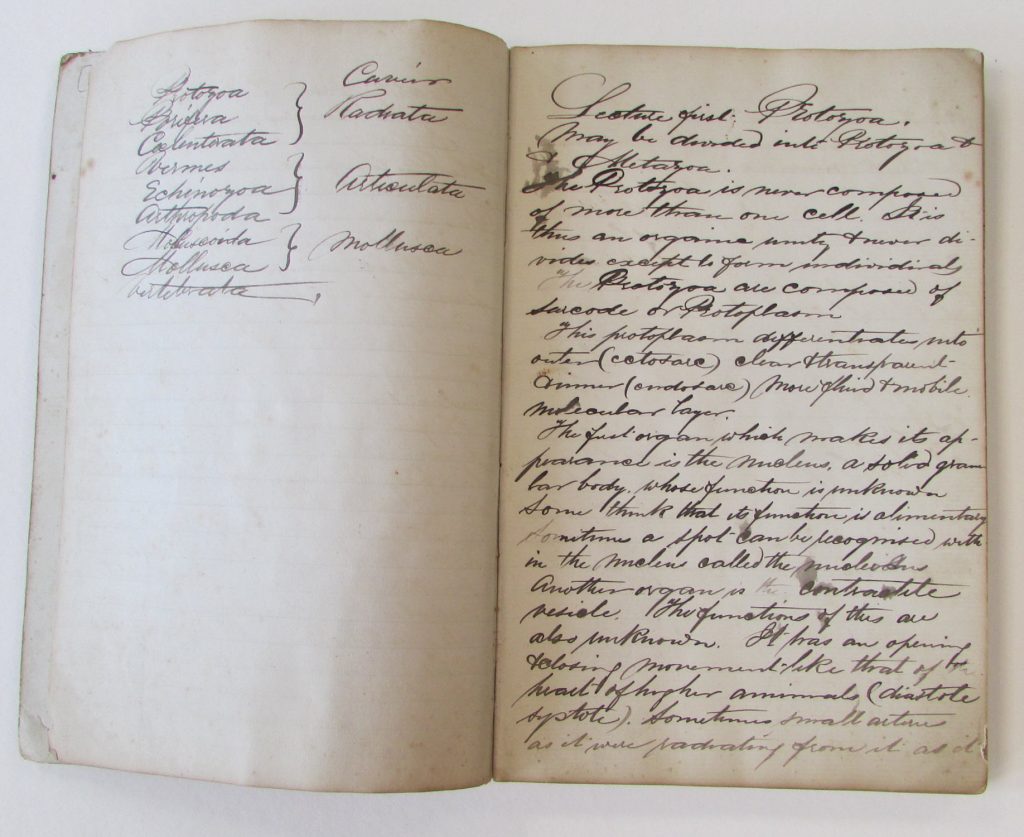
The first page of James Blackie’s notebook for zoology lectures at the University of Otago in 1879. MS-4465/006.
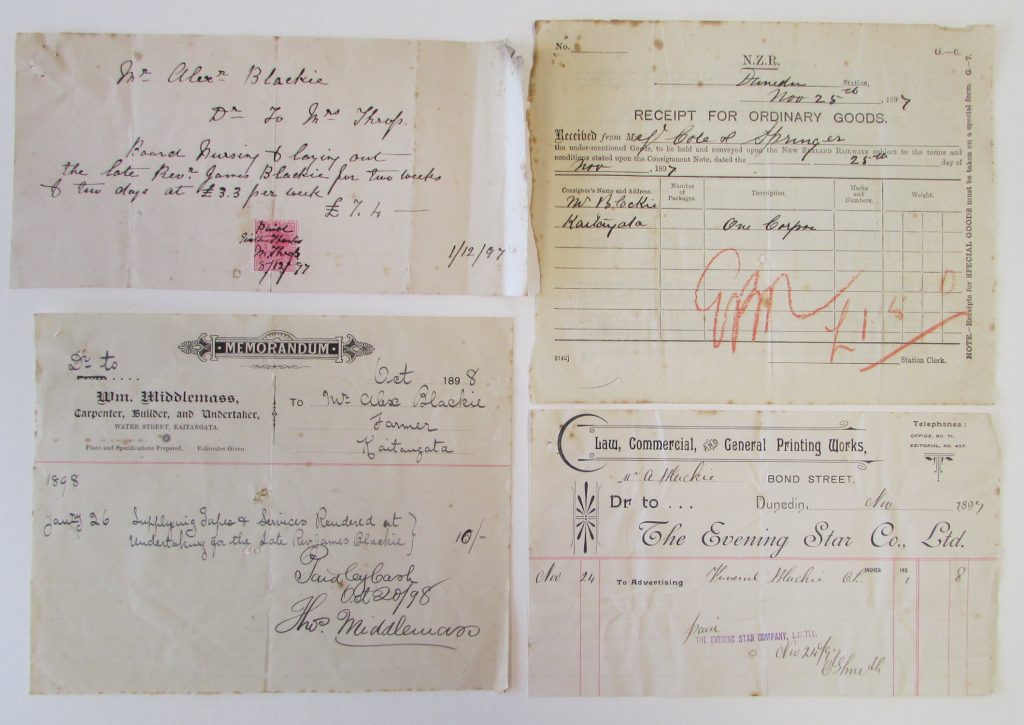
Some receipts relating to Rev. James Blackie’s death and funeral, 1897. He had travelled to Dunedin for medical treatment. MS-4443/082.
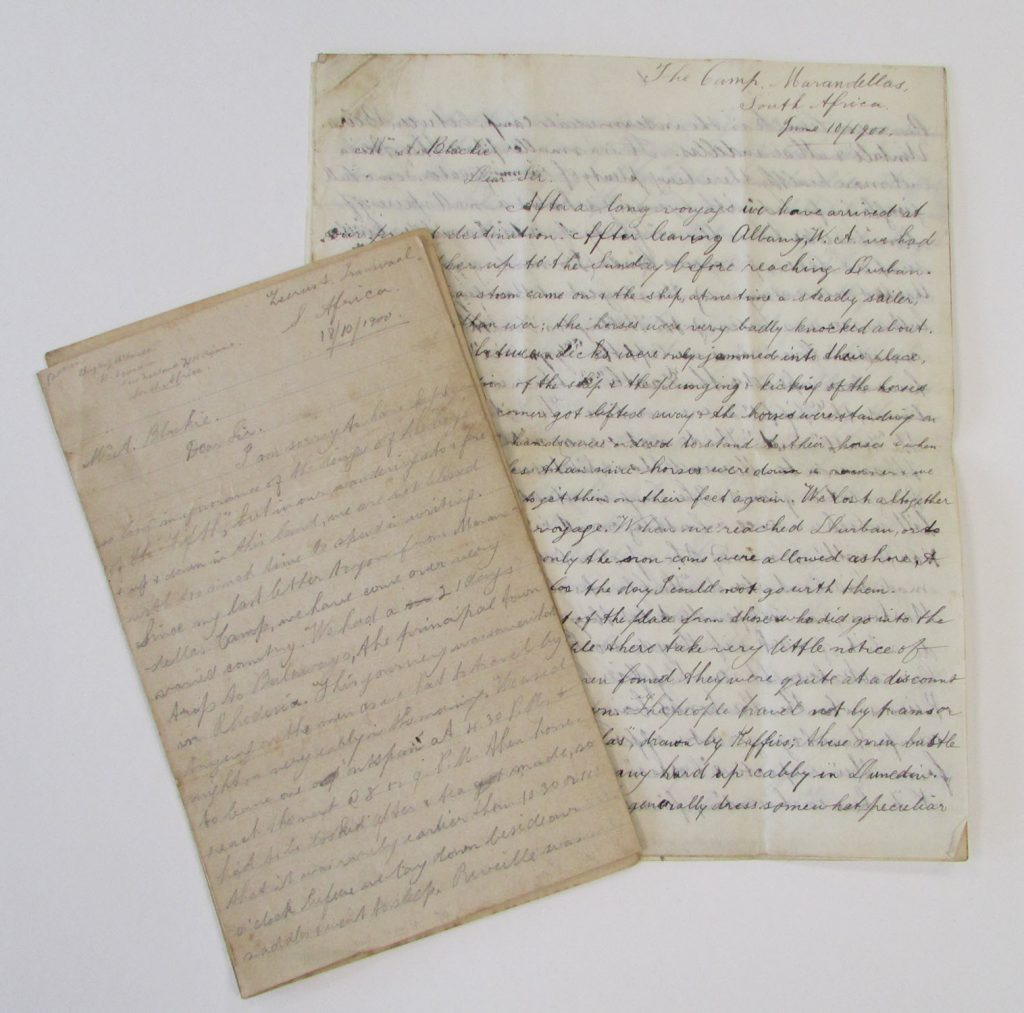
While there are many World War I letters in the collection, this is something rarer: letters from the South African War. James McDonald was a ploughman for the Blackies. He headed to war as a bugler with New Zealand’s 5th contingent to South Africa, writing home to his employer, Alexander Blackie. MS-4456/074.
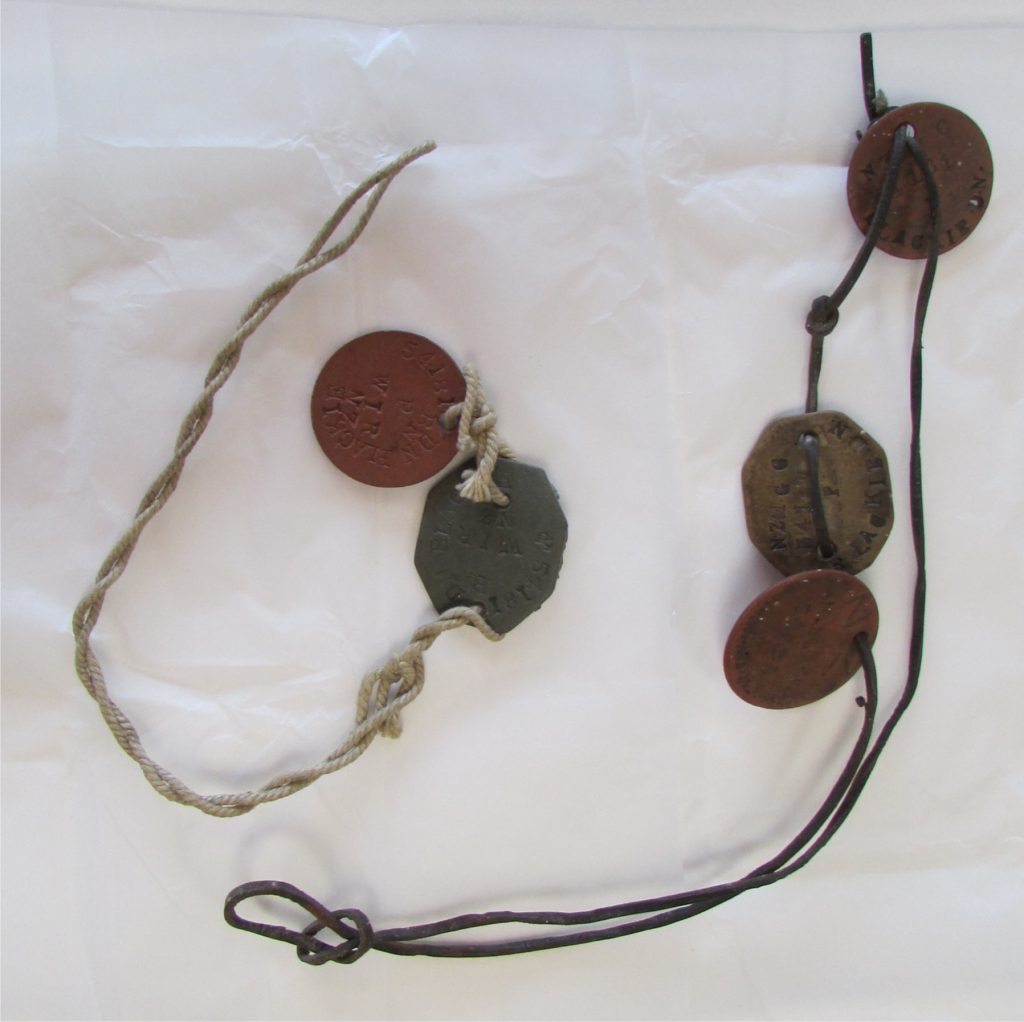
Davidson Blackie was one of several family members to serve in World War I – these are his identification tags. He was ‘a reluctant soldier’, noted Judith Robinson; ‘When we cleared out the house in 1982/3 after cousin Rhoda died, we found his army pack, just as he left it on returning home – dirty sox, half used (cake) toothpaste etc., programmes for shipboard concerts etc’. MS-4462/047.


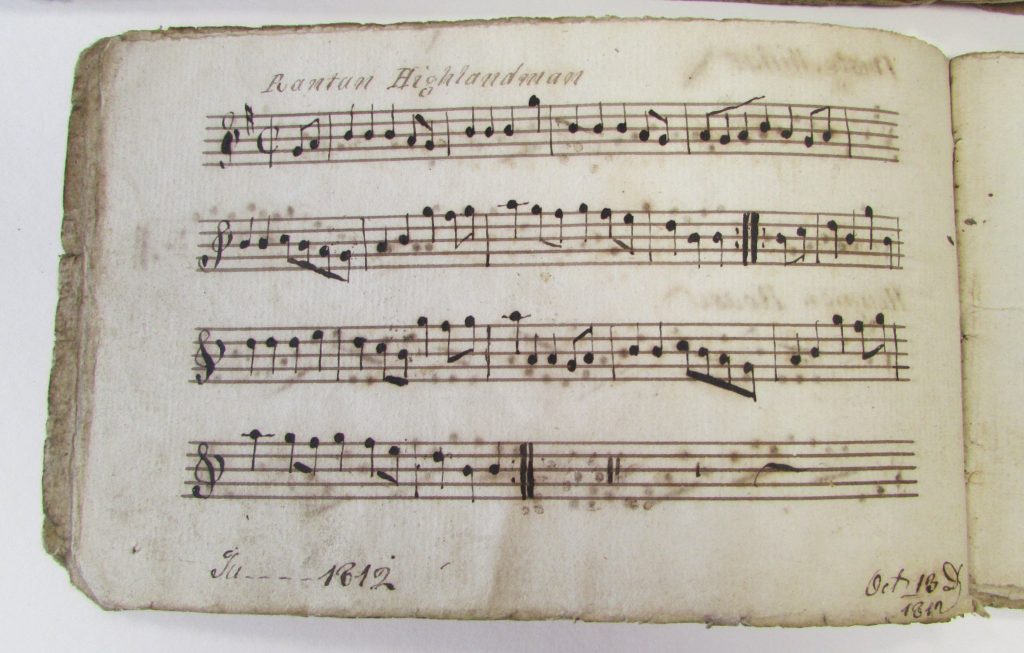
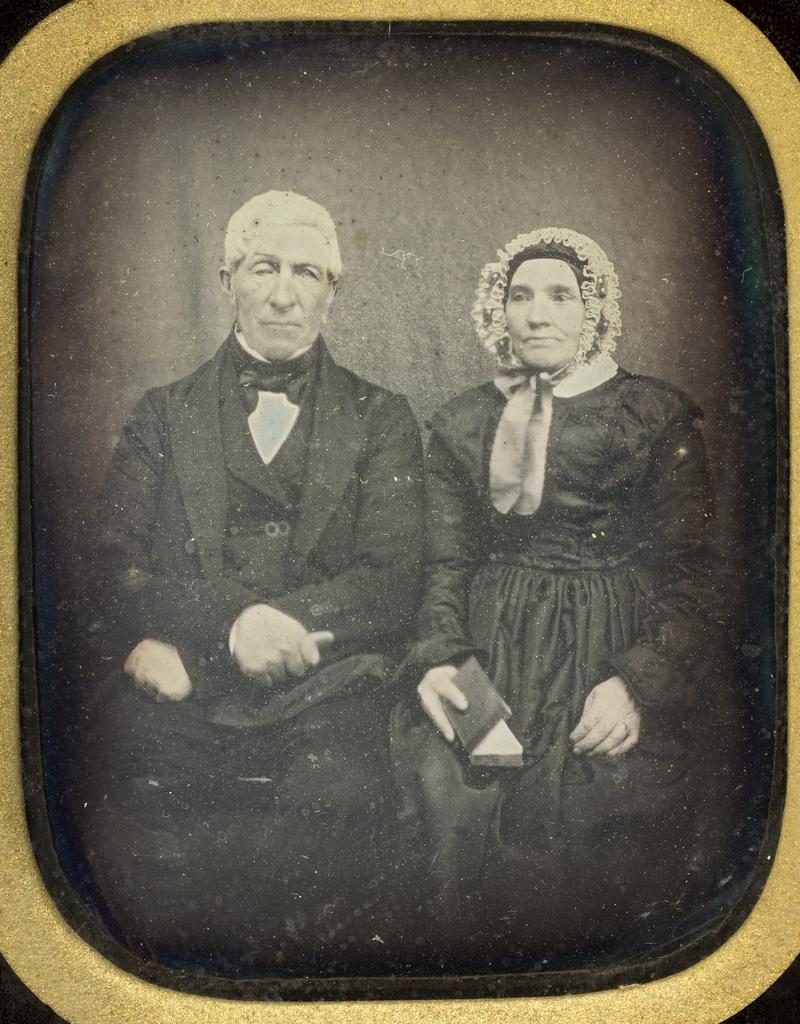
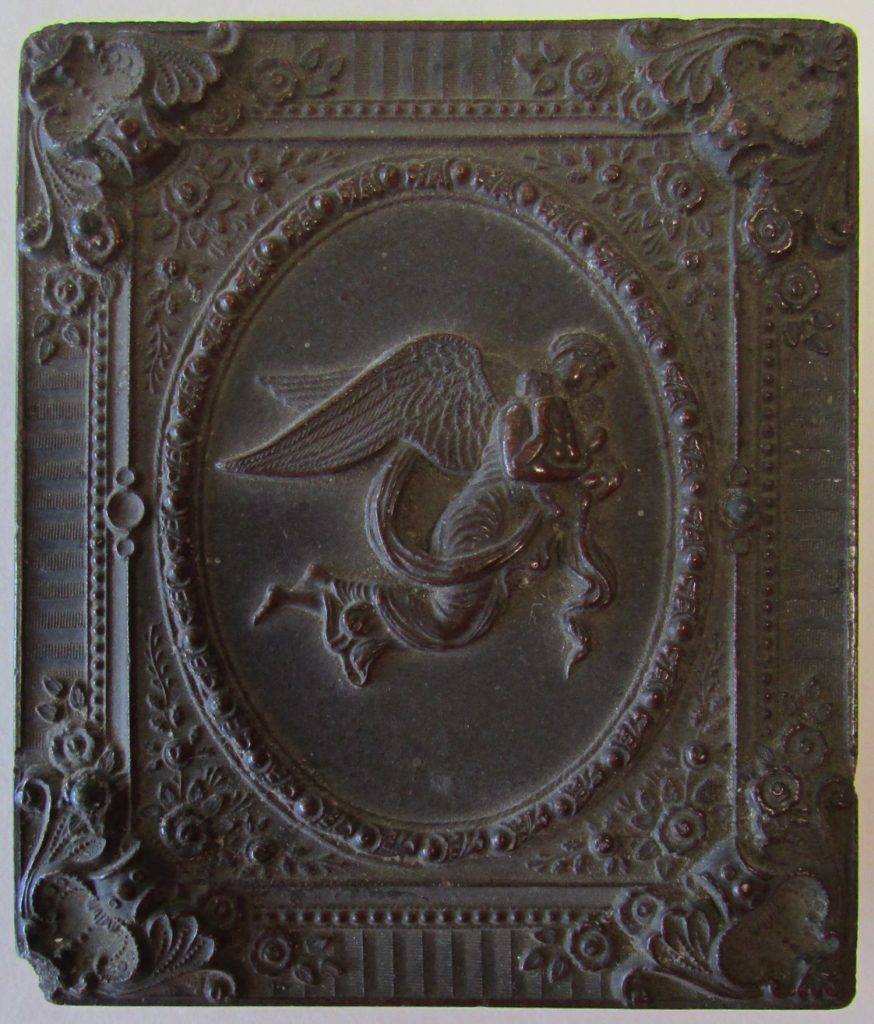
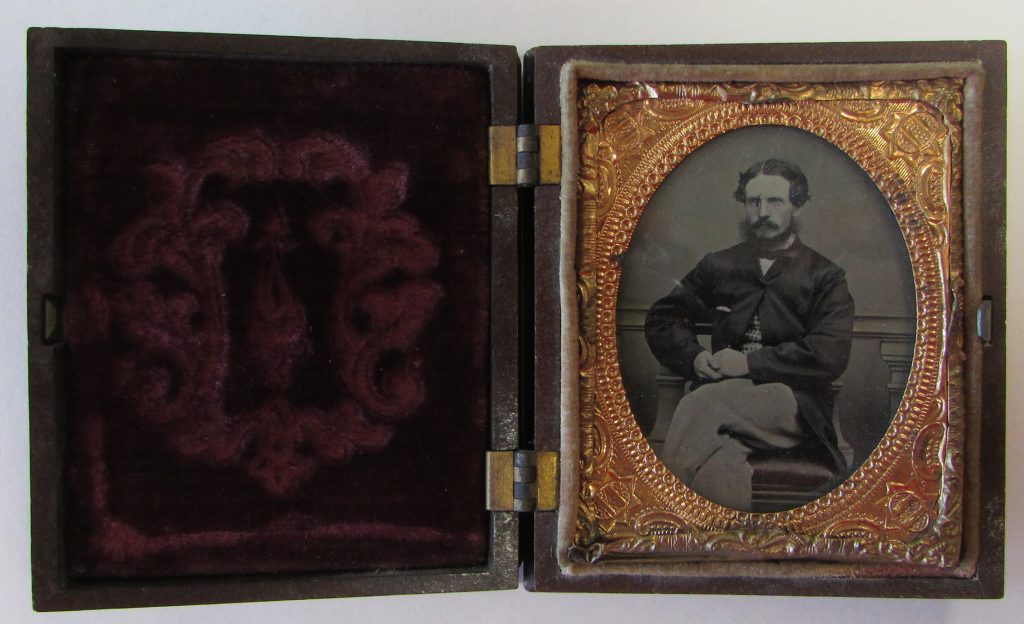

I’ve copied the musical notation for the reel Rantan Highlandman onto the tunes website for the Wellington Irish Sessions – we’ll put up with a Scottish tune or two!
It’s almost certainly a fiddle tune.
And the URL is http://wellington.session.nz/tunes/rantan-highlandman
That’s brilliant – thanks very much Andy 🙂
Great collection, the PCANZ Archives also has a few papers of the Rev. James Blackie and Jeanetta Blackie through her associated with the Presbyterian Women’s Training Institute, which complements the above papers.
I wondered if there could be any connection with Joseph Blackie who lived at 287 Muritai Rd Eastbourne in the very early 1900s.
Photos of his home can be seen online in the National Library photo archives.
Thankyou, Bridget Tanton
Hi Bridget, sorry but not that we know of. We did not come across anything relating to a Joseph in the papers.
Anna Blackman
Hi Bridget, my father name was Carl Joseph Blackie. He was born in 1911 in Dunedin. If this is the right person your talking about, please get back to me. Thanks.
I just purchased a 1911 Studio photograph of Mary ( I can’t make out the middle name) Blackie. It has Esauilgnt 1911 on it. It also says New Zealand on the back. Was just wondering if she is part of this family. I can send a picture of the photograph. It looks like it’s about an 8 x 10
Thank you so much for this. It brings back memories for me of some of the people mentioned, as I’m a great-grandson of Rev. James Blackie. I have a book that he was given as a prize at the University of Otago in 1873 signed by Professor Shand.
Kia ora Chris, thanks for your comment, we are glad you enjoyed the post.
Hi, my name is Carolyn, my mother’s maiden name is Pandrich and I have been tracing our family tree. I have worked out that Margaret Pandrich wife of Davidson Blackie was sister to William Pandrich from Dundee. William Pandrich is my great great grandfather. It is so interesting about the folk tunes because my uncle John Pandrich is the folk musician Jonnie Handle of the High Level Ranters and my other uncle Brian Pandrich plays the fiddle and used to play for the Killingworth Sword Dancers. We are from the North East of England.
Thanks for your comment Carolyn.